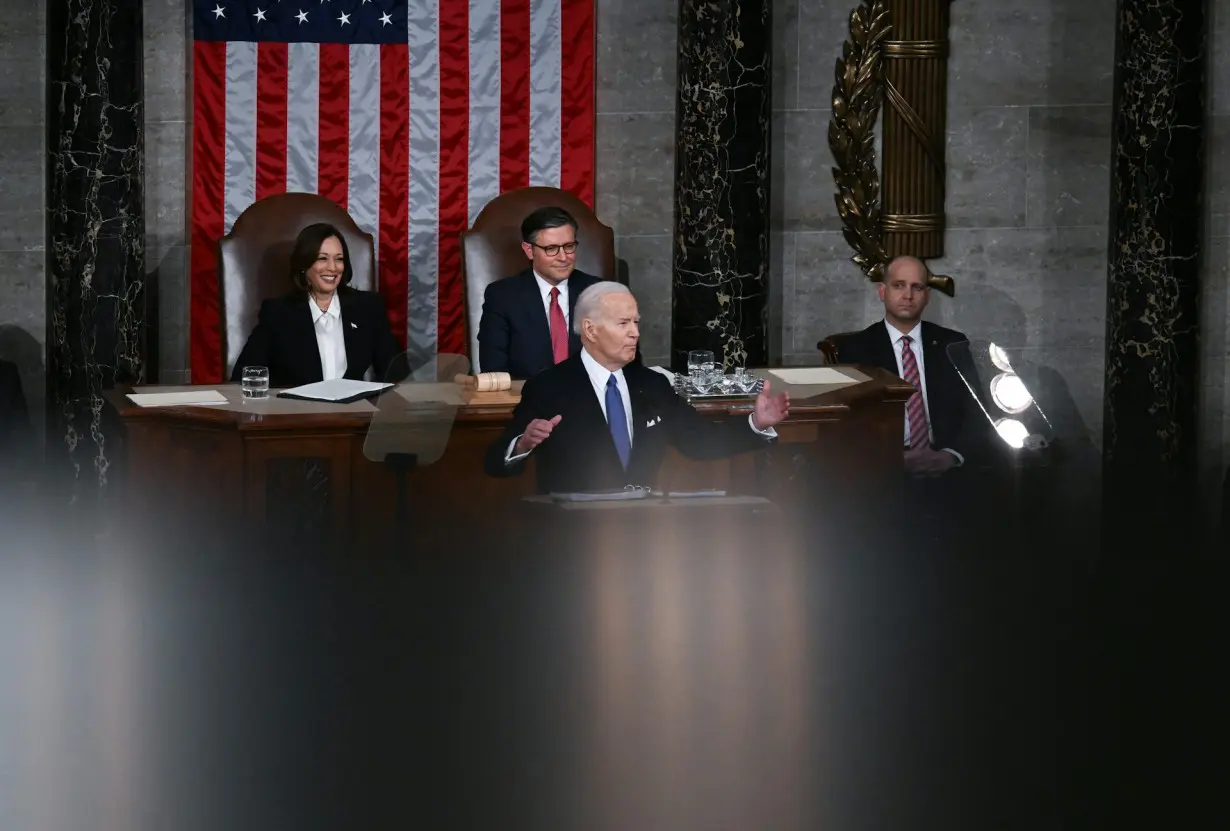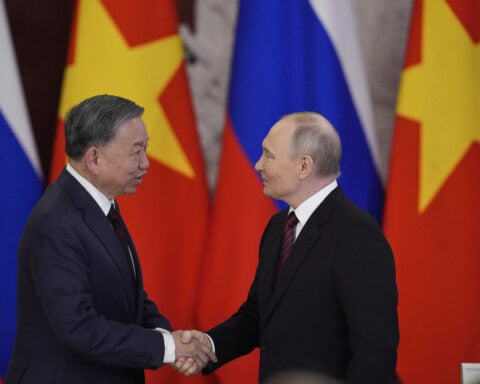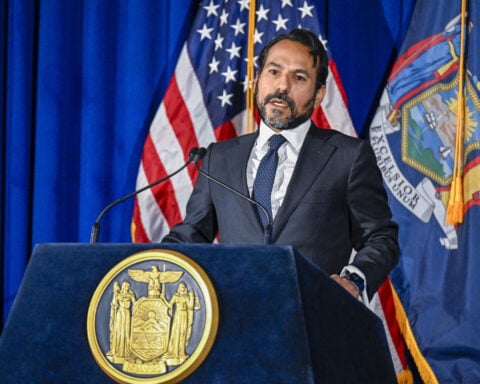During his 2024 State of the Union Address, President Joe Biden mentioned his presumptive challenger, Donald Trump, 15 times – but never once by name.
Instead, Biden referred to him as “my predecessor” 13 times. He also called him a “former Republican president” and a “former American president.”
These weren’t mistakes or memory lapses – the circumlocutions appeared in the president’s prepared remarks provided by the White House.
Instead, Biden was employing a rhetorical tactic in which politicians do everything except use their opponent’s actual name. In doing so, they subtly deprive their opposition of equal standing or legitimacy.
‘He who must not be named’
Biden’s predilection for avoiding Trump’s name is an example of what political activist Majid Nawaz dubbed the “Voldemort effect.”
Nawas recycled the term from J.K. Rowling’s Harry Potter universe, in which wizards employ phrases like “you know who” and “he who must not be named” to refer to Lord Voldemort.
The Voldemort effect is just another name for a cardinal principle of advertising: never mention your competitor by name. Doing so grants one’s rivals a certain degree of exposure and legitimacy.
One study of this phenomenon found that televised advertisements include comparisons between products half the time. However, only about 5% actually mention the advertiser’s competitor by name.
So when Biden calls Trump “my predecessor” or “the former guy” – as he did during a 2021 town hall – he’s avoiding recognizing his rival as a peer and an equal.
The illusory truth effect
Trump, on the other hand, makes use of a different strategy to diminish his political opponents: his infamous nicknames.
Politicians on both sides of the aisle have received ignominious monikers.
Trump branded Jeb Bush as “Low Energy Jeb,” Ted Cruz as “Lyin’ Ted” and Mitch McConnell as “Broken Old Crow.” Adam Schiff became “Pencil Neck,” Biden was christened “Sleepy Joe,” and Mike Bloomberg was derided as “Mini Mike.”
By employing nicknames – and repeating them ad nauseam – Trump makes use of a phenomenon called the illusory truth effect, in which repeated information comes to be accepted as fact, no matter its truthfulness.
In daily life, we often need to quickly distinguish between truths and falsehoods. And if we’ve repeatedly seen or heard something, we can typically recall it more easily. Since accurate information is typically encountered more frequently than the occasional fabrication, this rule of thumb is a useful one.
But politicians can exploit illusory truth by repeatedly branding someone a liar, a danger or, as Trump is wont to do, “crooked.” And Biden has taken a page from Trump’s playbook by branding the Republicans as the “MAGA Republican Party.”
Othering in action
Trump also employs a different strategy to demean his political opponents: othering.
During his 2016 campaign bid, Trump made a point of emphasizing Obama’s middle name, Hussein, to link him to the former Iraqi dictator Saddam Hussein.
He often mispronounces the first name of Vice President Kamala Harris, and during the 2024 Republican primaries, Trump took to referring to Nikki Haley as “Nimbra,” a corruption of her Punjabi first name, Nimarata.
By drawing attention to the seemingly exotic names of Obama, Harris and Haley, Trump casts them as foreigners, tapping into the xenophobia that animates some of his supporters.
Dale Carnegie, author of “How to Win Friends and Influence People,” wrote that “a person’s name is to that person the sweetest and most important sound in any language.”
Political campaigns, however, are anything but sweet, and voters will likely endure more circumlocutions and derogatory nicknames in the coming months as the battle between “the former guy” and “Sleepy Joe” heats up.
Roger J. Kreuz does not work for, consult, own shares in or receive funding from any company or organization that would benefit from this article, and has disclosed no relevant affiliations beyond their academic appointment.
Source: The Conversation

 Trump has begun another trade war. Here's a timeline of how we got here
Trump has begun another trade war. Here's a timeline of how we got here
 Canada's leader laments lost friendship with US in town that sheltered stranded Americans after 9/11
Canada's leader laments lost friendship with US in town that sheltered stranded Americans after 9/11
 Chinese EV giant BYD's fourth-quarter profit leaps 73%
Chinese EV giant BYD's fourth-quarter profit leaps 73%
 You're an American in another land? Prepare to talk about the why and how of Trump 2.0
You're an American in another land? Prepare to talk about the why and how of Trump 2.0
 Chalk talk: Star power, top teams and No. 5 seeds headline the women's March Madness Sweet 16
Chalk talk: Star power, top teams and No. 5 seeds headline the women's March Madness Sweet 16
 Purdue returns to Sweet 16 with 76-62 win over McNeese in March Madness
Purdue returns to Sweet 16 with 76-62 win over McNeese in March Madness








